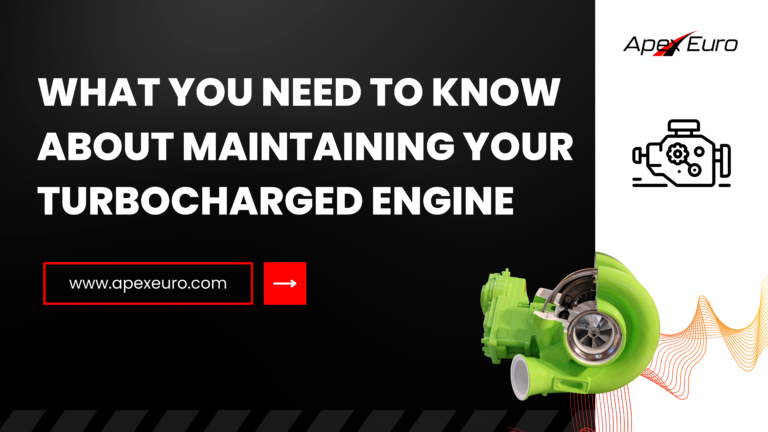Turbocharged engines are becoming increasingly popular due to their ability to generate more power from a smaller engine size. However, owning a turbocharged engine also means you need to be more diligent in terms of maintenance to ensure optimal performance and longevity. In this article, we will discuss what you need to know about maintaining your turbocharged engine.

Turbocharged engines have more complex components compared to naturally aspirated engines, which means they require more attention and care to operate at their best. Failure to maintain a turbocharged engine can lead to costly repairs and reduced performance, which is why regular maintenance is crucial.
Regular Oil Changes: Turbocharged engines generate more heat, which can cause oil to break down more quickly. Regular oil changes are necessary to prevent damage to the engine and keep it running smoothly.
Air Filter Replacement: The air filter in a turbocharged engine plays a vital role in ensuring the engine receives clean air. Dirty air filters can reduce engine performance and cause damage, so they should be replaced regularly.
Cooling System Maintenance: Turbocharged engines generate more heat, which means the cooling system needs to be in good condition to prevent overheating. Regular maintenance of the cooling system, including checking for leaks and topping up coolant, is essential.
Check for Boost Leaks: Boost leaks can cause a reduction in engine performance and increase the risk of damage to the turbocharger. Regularly checking for boost leaks and repairing them promptly is crucial.
Use High-Quality Fuel and Oil: Using high-quality fuel and oil can help prevent damage to the engine and ensure optimal performance.
Q: How often should I change the oil in my turbocharged engine?
A: It is recommended to change the oil every 5,000 to 7,500 miles, depending on the manufacturer’s recommendations and driving conditions.
Q: Can I use regular oil in my turbocharged engine?
A: No, turbocharged engines require synthetic oil due to the higher operating temperatures and stress placed on the engine.
Q: How often should I replace the air filter in my turbocharged engine?
A: It is recommended to replace the air filter every 15,000 to 30,000 miles or as per the manufacturer’s recommendations.
Q: What are the signs of a boost leak in a turbocharged engine?
A: Signs of a boost leak can include reduced engine performance, hissing sounds, and higher than normal turbocharger RPMs.
Maintaining a turbocharged engine requires more effort and diligence than maintaining a naturally aspirated engine, but with proper care, you can ensure optimal performance and longevity. Regular oil changes, air filter replacement, cooling system maintenance, checking for boost leaks, and using high-quality fuel and oil are all crucial maintenance requirements for a turbocharged engine. By following these maintenance tips, you can keep your turbocharged engine running smoothly for years to come.